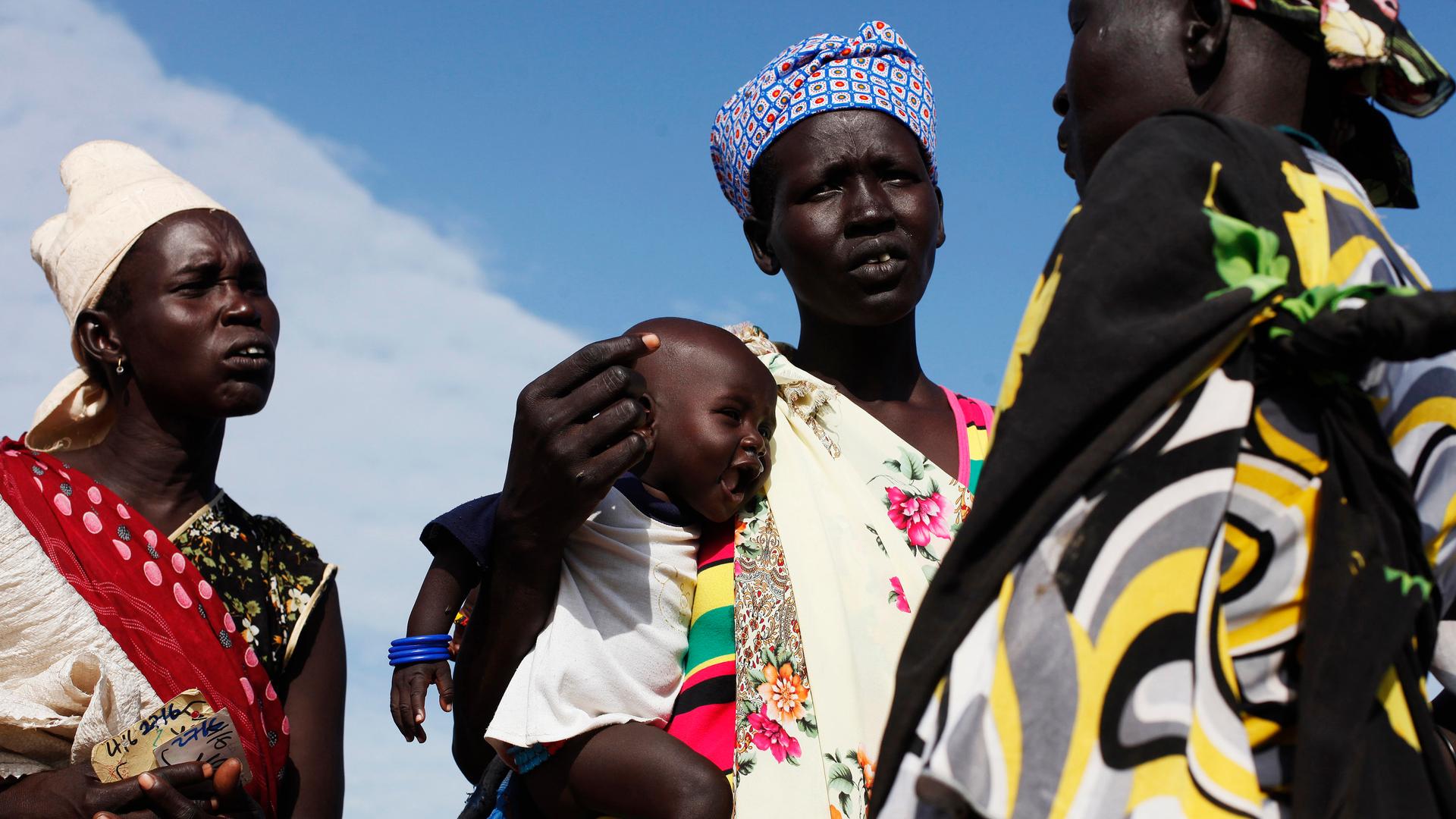Where’s the outrage over mass rape in war-torn South Sudan?
A woman carries a baby as she talks with other women at a food distribution in Minkaman, South Sudan.
In recent mouths, numerous reports have confirmed the staggering level of mass rape in South Sudan, Africa's newest nation.
The United Nations, for example, accuses the South Sudanese army of gang rape and torture, including burning girls alive.
The African Union report on South Sudan's war, which was published in October, contains details of old and young women who were gang raped and left bleeding and unconscious. The African Union has called for the establishment of a court to prosecute those responsible for gross human rights abuses.
The South Sudanese Civil War is a conflict between government soldiers supporting President Salva Kiir, an ethnic Dinka, and rebels supporting former Vice President Riek Machar, a Nuer. The war began in December, 2013 after President Kiir fired Machar.
The brutal sexual attacks are not indiscriminate. Rape is being used as a weapon of war in the country. Regional leaders and the international community are accused of inaction as women continue to suffer.
A crime against humanity
Under the UN, mass rape is a crime against humanity. In 2008 the UN Security Council adopted resolution 1820, which noted that “rape and other forms of sexual violence can constitute war crimes, crimes against humanity or a constitutive act with respect to genocide."
In spite of the UN resolution, no state has ever been held accountable for using sexual violence as a weapon of war. And the situation in South Sudan is no exception. In face of a growing outcry for humanitarian intervention, the international community remains mostly silent on the atrocities caused by sexual violence.
According to a report by Amnesty International, women's bodies have become part of the terrain of conflict worldwide. It says that rape and sexual abuse are not just a by-product of war but are used as a deliberate military strategy.
Discussing the issue on Twitter, Hannah McNeish, a freelance journalist in East and Central Africa, asked:
Hal Dockins, a trial lawyer, pointed out:
Responding to a tweet by David Milliband, president and CEO of the International Rescue Committee (IRC), Hannah McNeish wondered why South Sudan's case does not receive much attention as the Democratic Republic of Congo (DRC):
Foreign policy double standards
There is an argument that countries such as South Sudan enjoy a high level of impunity when it comes to sexual violence because of the lack of gender balance in the world of foreign policy making:
The majority of the victims of this weaponization of rape are women and girls, but the international community has disregarded rape as posing no threat to regional security. The distinction between issues of security and the boundaries of gender has long been held in place by states and international law. While issues of chemical and biological weapons or acts of extremist violence are under close scrutiny by the international community, rape is regulated to work of NGOs and women support groups.
This points to the need of greater representation within the top tiers of the international community. If the UN and the rest of the world do not acknowledge the right of these victims, those in South Sudan and beyond, this culture of impunity will continue to perpetuate.
This story was cross-posted from Global Voices, a community of hundreds of bloggers worldwide.
Our coverage reaches millions each week, but only a small fraction of listeners contribute to sustain our program. We still need 224 more people to donate $100 or $10/monthly to unlock our $67,000 match. Will you help us get there today?
